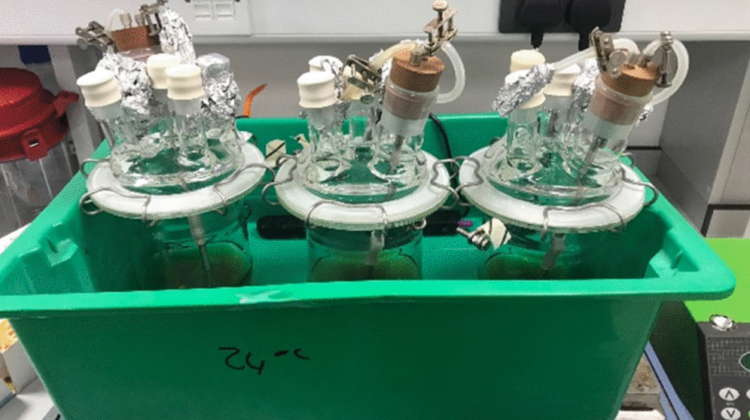
Researchers from the University of Kent’s School of Biosciences have designed and built equipment that can be used to investigate bacterial biofuel production at a fraction of the cost of existing commercial systems. Using the technology, they also demonstrated that bacterial genetic engineering could be used to enhance the production of biofuel.
The team was prompted to build its own bioreactors because the existing commercial equipment required for the study of anaerobic biofuel-producing bacteria is often prohibitively expensive, costing between £8,000 and £25,000. They are also are both expensive to install and come with ‘notoriously high consumable costs’.
According to the researchers, the three-vessel parallel bioreactor system offers many of the same functionalities of expensive commercial systems, including in-line monitoring of temperature, pH and redox poise. They hoped that by designing a cheaper bioreactor system, it would enable more research laboratories to investigate the use of natural and genetically engineered bacteria in biofuel production.
Having built the new system, the researchers used the equipment to verify the fact that one of their genetically engineered variants of Clostridium bacteria could produce the biofuel butanol more rapidly. Their findings revealed that a subtle change to a single gene could result in remarkable changes to how the bacteria convert sugars into viable biofuels.
‘These exciting developments will help to advance research into bacterial biofuel production, and we are particularly enthusiastic to use our expertise to optimise processes that can convert waste products from food and agriculture into biofuels that are greener alternatives to fossil fuels,’ said Mark Shepherd, a senior lecturer in microbial chemistry at the university.
The research has been published in the journals Access Microbiology and Microbial Biotechnology.


